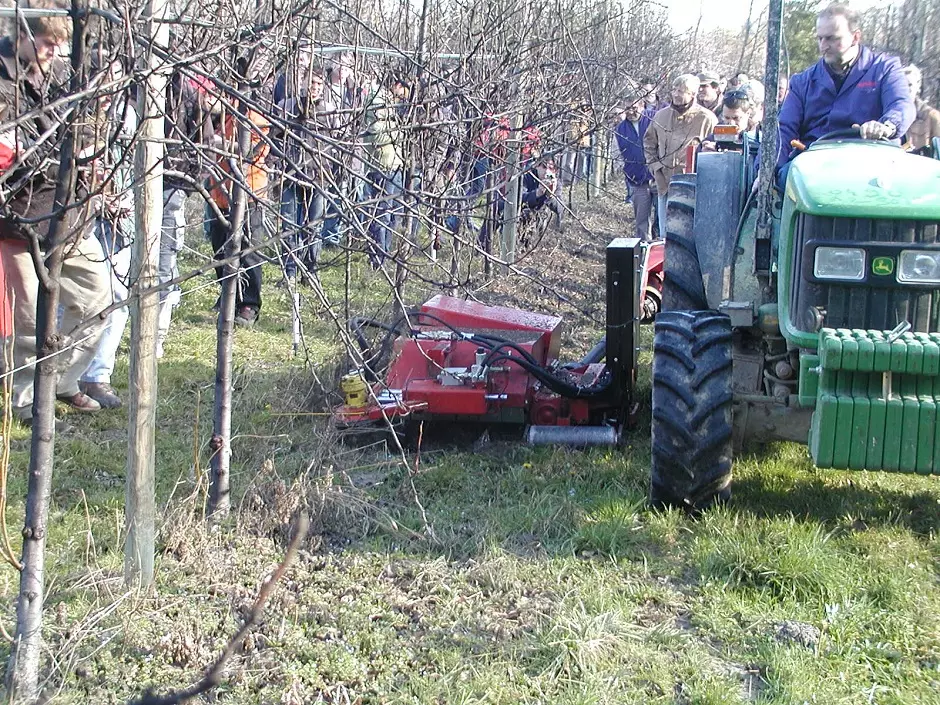
Environment and Biodiversity
Place
Avignon, France
Sponsor
Xavier Heber-Suffrin
Grant(s)
€40,000 to the Selection Committee at 2012/12/19
Project leader
"Domaine de la Durette is right next to the Saignonne catchment area operated by Veolia Water, and could become a fantastic showcase for "zero inputs" farming techniques for the conservation of water resources."
Xavier Heber-Suffrin
Groupe de Recherche en Agriculture Biologique (GRAB), created by pioneering farmers and a researcher more than 30 years ago, has set the objective of improving the practices and techniques for organic farm production, to meet new global challenges (feeding a growing population, adjusting to climate change, scarcity of fossil energies, depletion of ecosystems, health of living beings and sustainability of agriculture) and to promote the use of its knowhow and its innovations by farmers in general.
Innovation, social utility and economic profitability
With its Domaine de la Durette agroecological farm, owned by the General Council of Vaucluse and located at the gates of Avignon, GRAB is trying out an agricultural system around four closely linked hubs of activity: an organic farm, an experimental research plot, a center for agricultural vocational training, and raising public awareness.
Promoted in partnership with INRA, the Vaucluse Chamber of Agriculture, the University of Avignon and the Technical Institute for Organic Agriculture, this pilot farm is based in the Saignonne catchment area which supplies drinking water to Greater Avignon. The project, initiated in 2010, aims at the medium term (15 years), with planting in 2013, the first results in 2014 for annual crops, and in 2016 for perennials.
The economic and social hub innovatively allies arboriculture and agroforestry, to develop the ecosystemic services delivered by each of the activities. The goal of economic profitability is a predominant factor in the technical decisions. It is estimated that five equivalent full-time jobs will be created.
Research, training and awareness raising
The farm is an experimental research plot for the scientific partners wishing to validate working hypothesis on the crops in place and their miscellaneous combinations at the scale of the overall system. It is also a training facility for producers who want to convert their farms to organic, through the creation of a nursery for farming businesses, and also for agriculture students. The results of its researches are presented at demonstration events to disseminate the innovations to the general public.
A professional network with competent and structured partners
Ultimately, the governance of the project could be entrusted to a nonprofit association created by the executive committee formed in 2010, attended by all the partners mobilized around the project and local players in agroecology. In the meantime, a technical team, combining farm operators, experimental workers and researchers, is the coordination body for guiding decisions. A group of referent farmers (10 market gardeners and arboriculturists) was formed in 2011 to validate the crop systems and monitor their progress periodically. Production management and produce marketing are entrusted to a specially formed farm group. Various partners are responsible for design and economic follow-up: the Chamber of Agriculture, which counsels young farmers in particular, setting up organic farms and conversion projects, Bio de Provence, which allies the regional organic farm groups, and Pôle Européen d'Innovation Fruits et Légumes (PEIFL). Named a competitiveness hub in 2005, PEIFL is involved in particular for its expertise in setting up research/company financing.
An experimental agroecological farm spreads its innovations
Alongside the Greater Avignon Urban Community, the Fondation de France and the Regional Council, the Foundation is participating specifically in the reconditioning and refurbishment of the buildings, the irrigation system, the existing farm plots, and the purchase of the farming equipment.

